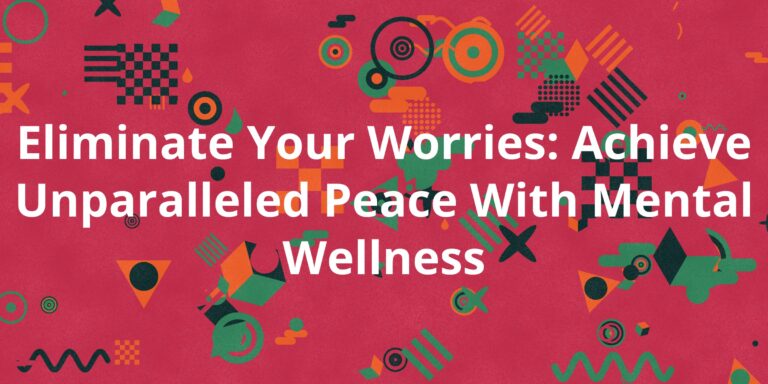Mental health is an essential aspect of our overall wellbeing. It affects how we think, feel, act, and interact with others. Despite its importance, mental health is often overlooked or misunderstood. In this article, we will explore some little-known factors that can impact mental health and provide tips on how to unlock their power.
1. Sleep: Sleep is a crucial component of mental health. It allows the brain to process emotions, consolidate memories, and repair itself. However, many people struggle with getting enough sleep due to stress, anxiety, or other underlying issues. To improve your sleep quality, try establishing a regular bedtime routine, avoiding caffeine and alcohol before bed, and creating a comfortable sleep environment.
2. Nutrition: What we eat has a significant impact on our mental health. Eating a balanced diet rich in fruits, vegetables, whole grains, and lean protein can help improve mood, reduce stress, and boost energy levels. On the other hand, consuming processed foods, sugary drinks, and excessive amounts of caffeine or alcohol can negatively affect mental health.
3. Exercise: Regular exercise has been shown to have numerous benefits for mental health, including reducing anxiety and depression, improving mood, and increasing self-esteem. However, not all types of exercise are created equal. Aim for moderate-intensity workouts such as brisk walking, cycling, or swimming, which can be done most days of the week without putting too much strain on your body.
4. Mindfulness: Mindfulness is a practice that involves being present and aware of your thoughts, feelings, and surroundings. It has been shown to reduce stress, anxiety, and depression and improve overall wellbeing. To incorporate mindfulness into your daily life, try meditation, deep breathing exercises, or simply taking time to observe your thoughts and emotions without judgment.
5. Social support: Having a strong social support network is essential for mental health. It provides a sense of belonging, reduces feelings of isolation, and can help cope with stress and adversity. However, not everyone has access to social support, and for those who do, it’s important to nurture these relationships and prioritize them in your life.
6. Stress management: Chronic stress can have a significant impact on mental health. It can lead to anxiety, depression, and other mental health issues. To manage stress, try identifying the triggers that cause stress and finding ways to cope with them, such as through relaxation techniques or talking to a therapist.
7. Spirituality: Many people find comfort and solace in their spiritual beliefs and practices. Whether it’s through prayer, meditation, or other spiritual practices, these can help reduce stress, improve mood, and provide a sense of purpose and meaning in life.
In conclusion, mental health is a complex issue that requires a multi-faceted approach to manage. By incorporating these little-known factors into your daily routine, you can unlock the power of mental health and live a happier, more fulfilling life. Remember, it’s okay to ask for help if you need it, and seeking professional support is a sign of strength, not weakness.



